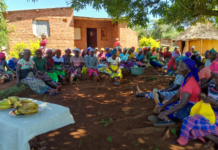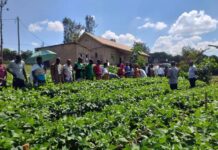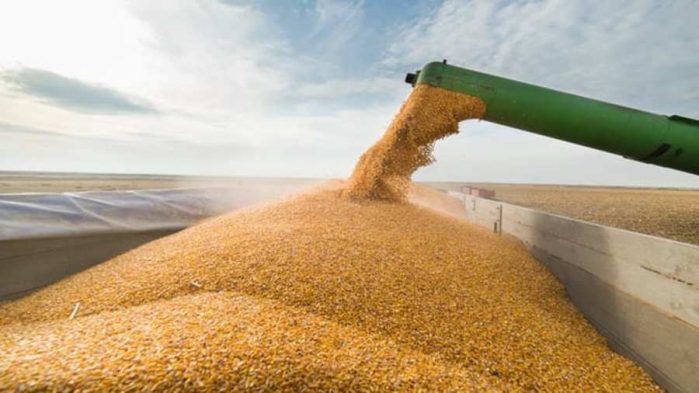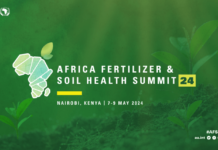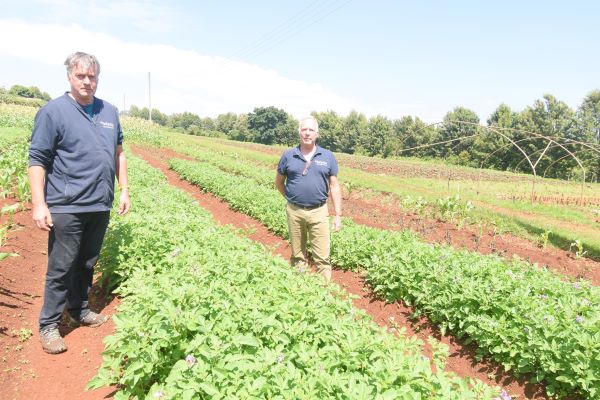
By Zablon Oyugi
An innovative hybrid true potato seed (HTPS) breeding technology being introduced in Kenya by Solynta, a Dutch-based potato breeding technology company, is set to unlock the full potential of the country’s smallholder farmers’ production.
According to Charles Miller, Solynta’s Director of Strategic Alliances and Development, just like the rest of the world, farmers in Kenya have been relying on tubers which are susceptible to diseases and rotting further resulting into dwindled yields and heavy losses.
“Solynta is the first company to successfully breed hybrid potatoes resulting in true seeds which are disease-free and resilient meaning a farmer can easily predict the yield outcome,” said Miller.
The technology which is also non-GMO ensures farmers have constant supply of clean seeds for planting all year-round Additionally, breeding new varieties is also much faster than via seed-tuber based breeding.
Miller says the seeds were first introduced in Kenya in 2020 following importation nod by Kenya Plant Health Inspectorate Service (KEPHIS) and since then the seeds have been going through field trials in central and Rift Valley regions where potato farming is highly practiced.
“We have received excellent feedback from the out growers who have tried our seeds. They do not like tubers because besides being bulky, they also rot very fast depending on the weather and storage,” he said.
Warmolt Tonckens, Solynta’s Business Development Lead in Kenya and who also runs Molly Farm, a 20-acre farm in the quiet landscape of Tigoni, where some demonstration plots have been set aside for some three Solynta potato varieties says the farm receives visitors regularly who are interested to learn about the new varieties.
“We normally receive various guests including farmers, researchers and government officials from some of the regulatory bodies who come to monitor the performance of the new potato varieties in comparison with the local ones,” said Warmolt.
He is able to show, to guests, how the Solynta potato varieties grown from seed even to the first generation tuber without the use of chemical fungicides are healthy and vigorous.
The new varieties namely Solhy 016 and 017, says Warmolt, can withstand Late Blight pressure in the field and still give a good yield as compared to the local varieties which minus constant weekly chemical spraying cannot survive.
Food security
According to Miller, with Solynta’s HTPS which enables enhanced disease and pest resistance, farmers will only need between 36-38,000 seeds for an acre which can in turn yield up to 25 tonnes in 100-110 days without use of any chemicals further promoting sustainable farming practices for food security.
“We need to do our uttermost to enable growers access to planting materials with limited risks and offer continuous production to satisfy the ever increasing market demand,” he said.
In fact, potato, as the second most important staple food crop in Kenya has emerged as one of the promising enterprises that is playing a great role towards realization of Kenya Vision 2030 of food security and nutrition.
However, the farmers who account for up to 800,000 of over 3 million people who benefit from the potato value chain in Kenya have been facing challenges in accessing clean planting materials given 98 per cent of potato seed in the country comes from uncertified informal sources something that is affecting production, as per the latest research by KEPHIS.
In the trials that have been carried out in Kenya, Rwanda and other parts of the world, Solynta varieties which are also tasty when cooked or fried into chips have yielded up to 20 tubers per plant, making it an excellent candidate for food security, said Miller.
“Solynta is committed to supporting growers worldwide, including smallholder farmers, to feed their communities with a plentiful yield.”
Empowering smallholders against climate change
Solynta is also seeking to empower small-scale out growers against climate change effects by providing potato varieties which are climate-resilient, robust hybrid that produce successful yields without the need for investment in fungicides to combat Late Blight.
“With several field trials conducted, we have confidence in the suitability of our genetics. This forms a solid foundation, allowing us to develop even more resilient and advanced varieties,” said Miller.
According to Warmolt, the company is currently working with groups of smallholders in Njoro, Nakuru County to help them raise the seeds from the nursery, a process that takes 4-5 weeks before transplanting, to enable them have the right agronomical practices ahead of the rollout.
“We have noticed increasing interest, especially among the youth who are impressed by the HTPS technology and are ready to raise seedlings for other farmers. With these, we are ready and willing to partner and share the knowledge,” he said.
Also, with the seeds, farmers become more in charge of the planting materials hence they have the flexibility of planting when it is favourable.
“Climate change has caused unpredictable weather patterns world over and in Kenya where smallholders still depend on rain-fed farming, relying on tubers can be a big risk as they may arrive late, not arrive or rot when the rains delay,” said Miller.
Strategic alliance
Solynta recognizes the power of global alliances in creating significant impact in attaining food security by promoting sustainable farming practices and improving crop yields.
“By fostering collaboration, encouraging innovation, and prioritizing seed security, the industry has the potential to contribute positively and sustainably to global food production and security,” said Miller.
Currently the company is engaged in a number of Sub-Saharan African countries such as Ethiopia, Kenya, Tanzania, Rwanda, South Africa and Malawi among others working with stakeholders in the potato value chain including seed merchants, farmers, and aggregators and industry associations like the African Seed Trade Association and National Potato Council of Kenya (NPCK) to improve the sub-sector.



